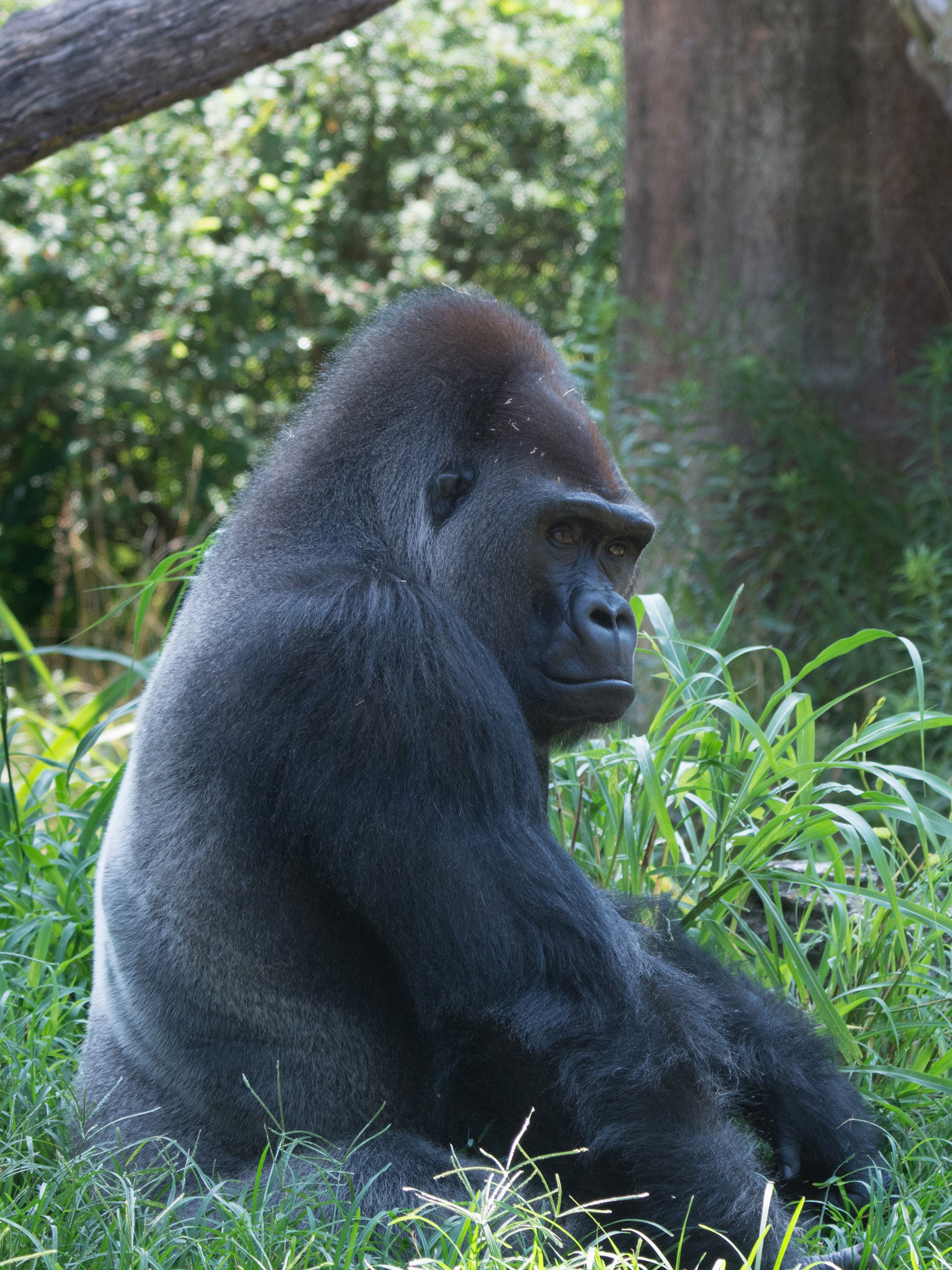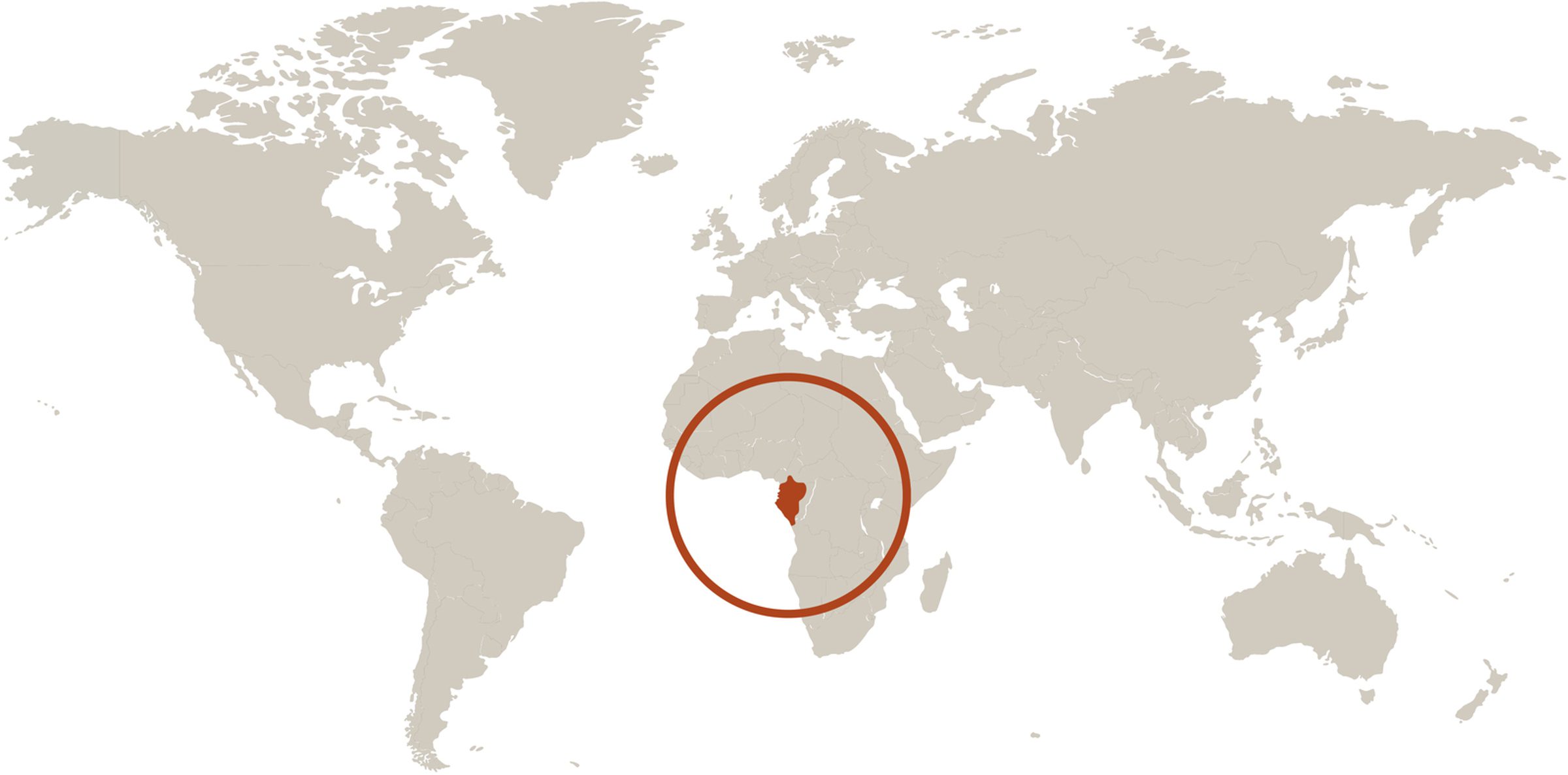
Western Lowland Gorilla
Gorilla gorilla
Did you know?
- Western lowland gorillas are part of the Hominidae family, which they share with other great apes.
- They are one of four subspecies of gorillas.
- Western lowland gorillas live in tropical forests in Western equatorial Africa.
- Gorillas are the largest primate in the world.
- Almost all gorillas found in zoos are Western lowland gorillas.
Adaptations
Western lowland gorillas are large and powerful. Males are bigger than females, sometimes reaching 500 pounds, though male adult western lowland gorillas average around 300 pounds. Males have exaggerated canine teeth, which allow them to protect their troop from rival males and predators. Gorillas are covered with hair, which helps with warmth and camouflage. They have many molars and premolars, helping with their folivore diet. Adult male gorillas develop silver hair on their back once they are full-grown, spurring the name “silverback."
Social Structure
Most gorillas live in family groups, which generally include a silverback (adult male), multiple females, and their offspring. The family group tends to be very stable, and gorillas usually live in peace, both within a group and between other groups. The silverback retains his leadership for years, and the females in his harem may stay with him for life. The adult females in the harem are unrelated, and they follow a social hierarchy between themselves. If a silverback dies, the troop breaks apart. After about 36 weeks of pregnancy, a female gorilla will give birth to one baby at a time. Offspring start weaning at 3 to 4 months but are dependent on their mother for several years.
Threat Level
- Unknown
- Common
- Near Threatened
- Threatened
- Endangered
- Critically Endangered
- Extinct in the Wild
Critically Endangered
The Western Lowland Gorilla faces an extremely high risk of extinction in the wild.
Range
Western equatorial Africa
Habitat
Tropical forests

We care about Western lowland gorillas.
All types of gorillas are in serious danger of extinction in the wild. Western gorillas number only about 110,000 – most of them the western lowland subspecies, plus a few hundred of the other western subspecies, the Cross River gorilla. Habitat destruction, the bushmeat trade, and the spread of disease are some of the problems affecting gorillas.
We support a bachelor troop of gorillas at the Saint Louis Zoo. The Saint Louis Zoo also participates in the Species Survival Plan for western lowland gorillas. This is a cooperative breeding program, with a number of zoos working together to ensure the survival of the species. Additionally, through the Saint Louis Zoo WildCare Institute Center for the Conservation of Congo Apes, we are developing conservation policies and local leadership to ensure the long-term survival of chimpanzees and gorillas in the Congo Basin.
Learn more about how we are helping western lowland gorillas.
Find this animal in The Wild

SAINT LOUIS ZOO ZONE
The Wild
You’ll find penguins, puffins, grizzly bears, gorillas, chimpanzees, to name a few. And while visiting, you can take a ride on the Conservation Carousel or hop aboard and ride the Zooline Railroad. There are also gift shops and eateries you can enjoy.

